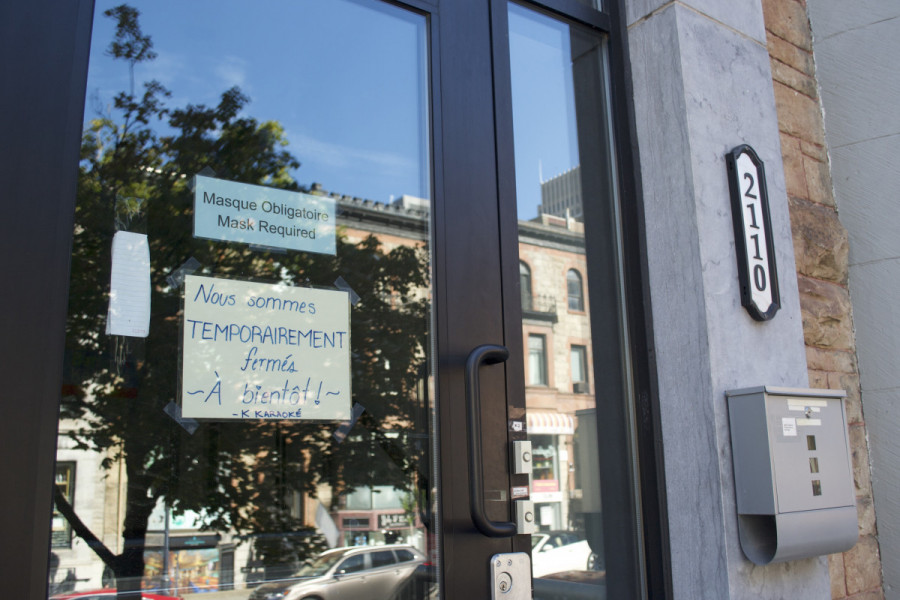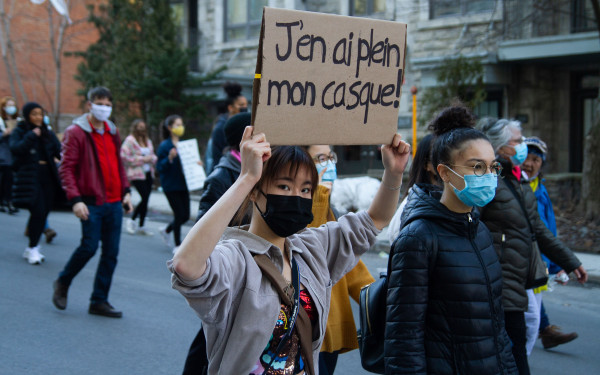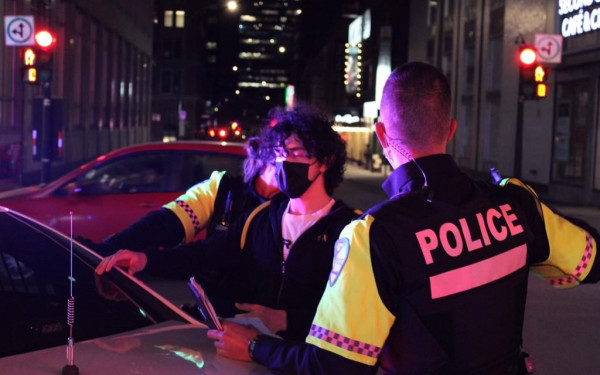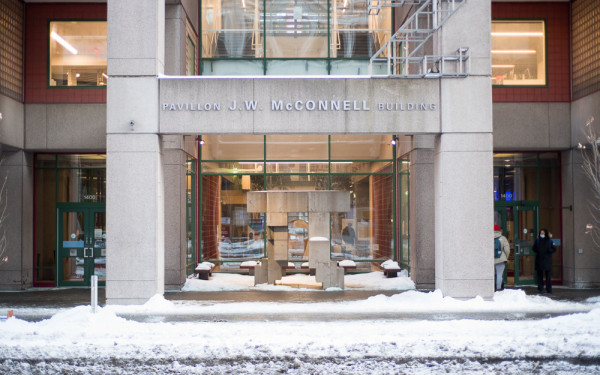Karaoke enthusiasts fear for future of the industry after ban
The ban came into effect after 80 cases of COVID-19 were linked to two bars in the Quebec City region
Karaoke enthusiasts say they fear the new ban on karaoke in Quebec could trigger a wave of closures from bars that have already seen major losses from having to adapt to the pandemic.
Karaoke host Miguel Plante believes it was ultimately the right decision, but worries people might be deterred from returning to karaoke bars even after restrictions are lifted.
“Now people might be too scared to show up to karaoke bars. Even if they reopen, there may be less clientele, and that definitely makes me scared,” said Plante, a host at Zoé karaoke bar in Saint-Michel until the ban forced him to be temporarily laid off.
Karaoke bars across the province were forced to close their doors this weekend after the province announced a ban on Friday, saying the practice is contributing to the spread of COVID-19. The decision comes after 80 cases of the virus were traced to two karaoke bars in the Quebec City region, resulting in at least 18 secondary infections.
Karaoke bars will still be able to stay open for bar service. Owners are also now required to keep a registry of all their patrons to improve contact tracing.
“We’re staying open, but it’s clear we’re going to be losing a lot of clientele,” Plante said.
The Date Karaoke Bar just outside Beaudry Metro in the Gay Village intends to keep its outdoor patio open, with performances from musicians and DJs in the coming weeks. Other karaoke bars around downtown Montreal were shuttered with signs saying they were forced to temporarily close.
“It’s definitely going to have a huge impact on us because we offer karaoke seven nights a week,” said Danny Jobin, the owner of the Date.
Jobin said he’s already spent over $12,000 to renovate the bar to meet the challenges posed by the pandemic. That included building a new kitchen so they could remain open later, and adding plexiglass and other safety measures, including a device used to sanitize microphones after each use. The losses were so major he even considered closing the bar.
The bar could seat over 200 until safety measures reduced its capacity to 80, said Nick Saanto, a host at the bar until the ban led to him losing his job.
“We have reduced hours, reduced staff, reduced money. It’s always expense, expense, expense for the little money coming in,” he said.
‘People have no source of pleasure anymore’
“Honestly, if karaoke doesn’t exist anymore when this whole pandemic shit is over, I will be sad.” — Brigitte Kang-Papadakis
The province says the ban will help reduce the risk of a second wave of transmission, and is needed because singing and sharing microphones is too risky. Karaoke events organized in the home are also being strongly discouraged.
Sean Cronin owns a company that rents karaoke machines to house parties, and said he’s considering holding off on rentals for the foreseeable future. Sales dropped to zero over March and July and had just started up again this August, when Montrealers returned to organizing karaoke parties.
“Right now a lot of people are really disappointed and getting tired of these regulations that seem to fall on our heads every weekend,” Jobin said. “It’s becoming heavy. People have no source of pleasure anymore.”
One Montrealer, Billy Karaoke, has even taken to protest over the ban. The self-described karaoke king of Quebec staged a rally at Parc Lalancette in Hochelaga last week. Then on Friday he wrapped himself up in chains outside the TVA office, demanding an interview with the network’s Denis Lévesque in the hopes of defending the “karaoke cause.”
“When I found out the karaokes would be closed, I felt a bit like how Dédé Fortin must have felt when he found out we wouldn’t become a nation,” he told the network in reference to the 1990s band Les Colocs, known for their staunch support of the separatist movement.
The organization representing the Gay Village, and the association and union representing bars in the province, have called on the province to reconsider the ban, saying past measures have already been effective at curbing the spread of the virus. Only those who act irresponsibly should be punished, the Village said in a statement Friday.
Some people The Link spoke to say they can’t help feeling like karaoke bars are arbitrarily being singled out.
Brigitte Kang-Papadakis hasn’t visited any bars since the start of the pandemic due to safety concerns, but fails to see how other bars are any less dangerous. Some karaoke businesses also have private rooms that can be sanitized after each visit, she said.
“Ever since I was 18, karaoke bars were my favourite places to go to,” said Kang-Papadakis, also a student at Concordia. “Honestly, if karaoke doesn’t exist anymore when this whole pandemic shit is over, I will be sad.”
Saanto says he’s still hopeful about the future of the Date, which has been open for almost 40 years and still brings in a group of dedicated regulars.
“The love of it is still going to be there,” he said.
“I was the regular host Fridays and Saturdays. What I miss the most is having 200 people screaming at the same time, and singing at the top of their lungs, almost fighting me to be able to sing.”
But until karaoke bars reopen, we must grieve.
Correction: A previous version of this article misidentified Brigitte Kang-Papadakis as Brigitte Kang-Papada. The Link regrets this error.


_600_832_s.png)




_600_375_90_s_c1.jpg)